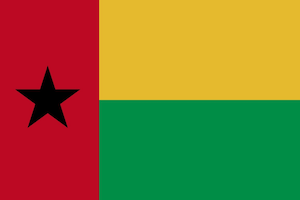Guinea-Bissau Elects New President as People Hope for Stability After Years of Turmoil

Western African nation Guinea-Bissau headed to the polls on the 23rd after three weeks of relatively calm campaigning, as voters chose a new president in hopes of ending years of political turmoil. However, the exclusion of the country’s largest opposition force has cast a political shadow over the election.
According to AFP, roughly 860,000 registered voters are selecting from 12 candidates, with “stability” emerging as the central theme of the race. Since gaining independence from Portuguese colonial rule, Guinea-Bissau has experienced repeated political upheaval, including four coups and several attempted coups, leaving the nation persistently fragile.
Improving living conditions is among citizens’ most urgent demands, as public services—including healthcare, education, and infrastructure—are in dire need of upgrades. Employment, anti-poverty measures, combating corruption, and curbing drug trafficking are also major voter concerns. With a population of just 2.2 million, nearly 40% of residents live in extreme poverty, placing the country among the poorest in the world. Persistent instability has also turned Guinea-Bissau into a key transit hub for drug smuggling between Latin America and Europe, further complicating governance efforts.
Polling stations were open from 7 a.m. to 5 p.m. local time (0700 GMT), and preliminary results are expected no later than the 27th. Incumbent President Umaro Sissoco Embaló, 53, is considered the frontrunner, and if re-elected, he would become the first president to serve two consecutive terms since the country adopted multiparty democracy in 1994.
His main challenger, opposition candidate Fernando Dias, is backed by the powerful but disqualified African Party for the Independence of Guinea and Cape Verde (PAIGC). This election marks the first time in the nation’s history that the PAIGC did not appear on the ballot. The party led Guinea-Bissau to independence in 1974 and dominated politics for decades. PAIGC leader Domingos Simões Pereira recently returned from exile, but the Supreme Court ruled that both the party and Pereira had missed submission deadlines for legislative and presidential candidacies, which resulted in their disqualification.
- 43 reads
Human Rights
Fostering a More Humane World: The 28th Eurasian Economic Summi

Conscience, Hope, and Action: Keys to Global Peace and Sustainability

Ringing FOWPAL’s Peace Bell for the World:Nobel Peace Prize Laureates’ Visions and Actions

Protecting the World’s Cultural Diversity for a Sustainable Future

Puppet Show I International Friendship Day 2020

